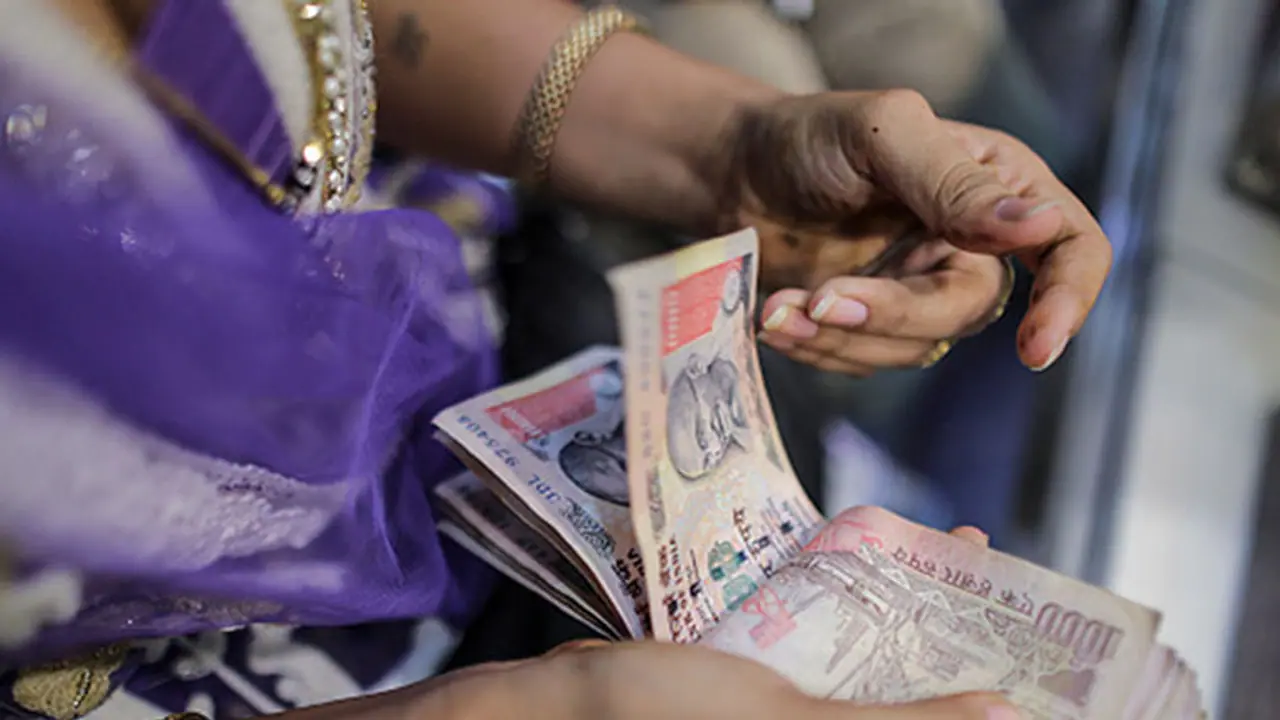Government had offered a one-time chance to come clean by paying a tax and penalty of 45 percent. The average declaration per declarant comes to ₹1 crore.
Announcing the declarations made under the Income Declaration Scheme (IDS), Finance Minister Arun Jaitley said 64,275 declarants disclosed an amount of ₹65,250 crore.

While the black money declarations will go up once all the online and manual filings of undisclosed assets filed at the end of the four-month window on September 30 are compiled, the government will get nearly Rs 14,700 crore or half of the due taxes, this fiscal.
"Some disclosures have not been tabulated... This figure could be revised upward once the final tabulation is done," he told a news conference here.
The government had offered a one-time chance to holders of income and assets that had illegally escaped taxes, to come clean by paying a tax and penalty of 45 percent.
On the declarations compiled so far, the government will get Rs 29,362.5 crore in tax and penalty. The declarants can pay this amount in two instalments up to September 30, 2017. Half or ₹14,681.25 crore will accrue this fiscal.
Last year, under a similar scheme for foreign black money holders, 644 declarations of undisclosed foreign income and assets were received, and just Rs 2,428 crore was collected in taxes.
"We will maintain the secrecy of these declarations," Jaitley said, adding the tax would accrue to the Consolidated Fund of India and would be used for the welfare of the public.
The average declaration per declarant comes to ₹1 crore.
A total tax of Rs 9,760 crore was collected under the Voluntary Income Disclosure Scheme (VIDS) amnesty scheme brought by the then Finance Minister P Chidambaram in 1997.
"In 1997, the tax collected was ₹9,760 crore," Jaitley said, adding that VDIS and IDS cannot be compared as the two schemes are different.
While IDS is not an amnesty scheme, VDIS provided blanket amnesty, he said. Taxation under IDS is charged at the rate of 45 percent while the effective rate of tax in the 1997 scheme was in single digit.
Jaitley also listed out the steps taken by the government to unearth unaccounted money in over two years, including ₹56,378 crore during a search operation and Rs 16,000 crore from non-filers of tax returns.
The government, he said, did not want to give a person who hasn't paid tax an easier term than one who has been honest in paying taxes and so a 50 percent penalty of the 30 percent tax was added.
"It was 30 percent tax, but the value of the asset was taken not for 1997, but for 1987. So the effective rate of tax was single digit rate of tax. And this is a 45 percent rate of tax. So the two schemes are entirely different," he said.
Refusing to draw a parallel between the two schemes, he said the two are different, and the effective rates are also different.
"This kind of declaration is a positive step because more and more people in the higher tax income want to become more and more tax compliant," he said.
Asked about what course of action the Income Tax Department would take against those holding black money but not declaring in the four-month window, Jaitley said the department has no intention of being vindictive.
"But if the department finds that there is an evasion somewhere, whatever normal activity they have to do they will do," he said.
The Finance Minister said India was not, in general, a tax compliant nation.
"At 45 percent tax, when the average declaration was one crore, it means there were no small traders. These were people with significant resources.
"With so many people declaring money, it shows a significant number of people want to become tax compliant. It's a very 'good figure' and if you take as part of all the steps that the government has taken cumulatively, these are very significant amounts," he said.
The Income Tax Department had virtually burnt the midnight oil to make the IDS a success by remaining open till midnight on the last day to facilitate filings.
Like the foreign black money scheme, the Income Declaration Scheme 2016 is not an amnesty scheme. These schemes extended an opportunity to come clean by paying more than the normal tax.
Between 1951 and 1997, ten amnesty schemes were announced to declare unaccounted money, most of which were misused. Dishonest taxpayers got away in those schemes by paying lesser than normal taxes, with all immunities.
Only two of the past schemes were seen as successful: the income declared under amnesty circular 1985/86 was ₹10,778 crore and under VDIS, 1997, ₹33,000 crore. But the real value of the assets declared was double the value considered for tax purposes. Taxes were paid at less than 50 percent of the normal rate, with zero interest and penalties.
The Remittances of Foreign Exchange and Investment in Foreign Exchange Bond (Immunities & Exemption) Act, 1991 saw about Rs 2,200 crore of income being declared, with zero taxes payable.
The India Development Bonds, 1991, were also issued under this scheme, with subscribers enjoying immunity from declaring the source of income. They got 9 percent tax-free interest on the 5-year bond.
IDS 2016 provided an opportunity to undeclared wealth holders to escape prosecution by paying 45 percent tax, including a penalty of 7.5 percent and surcharge of 7.5 percent.
